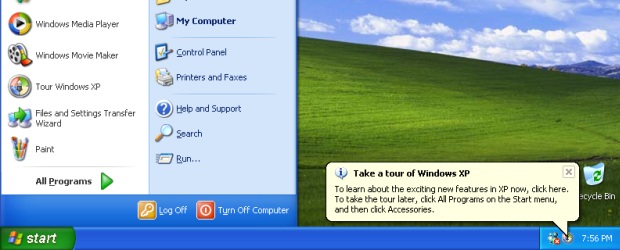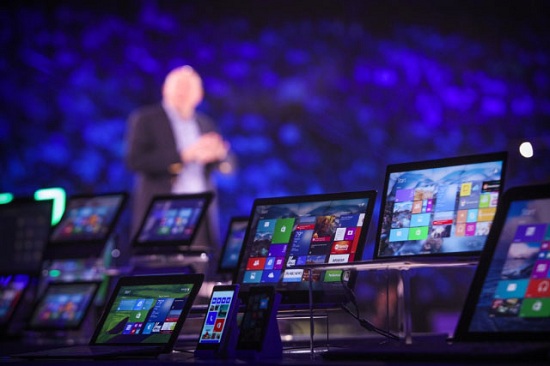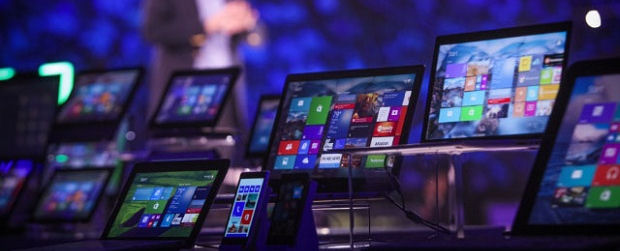There’s no doubt migrating away from Microsoft’s Windows XP OS before support is cut off on April 8th is important, particularly for businesses. And it’s undoubtedly a massive opportunity for Microsoft and its channel partners. But let’s not get carried away with the fear-mongering and paranoia.
Microsoft gave the channel clear marching orders at its Worldwide Partner Conference last summer: “you’re sitting on a gold mine” so get out there and get the upgrade. And it’s not just about moving to a “modern” OS. End of support (EOS) gets you in the door, but once you’re there, pitch the need for new devices to run that snazzy modern OS on, not to mention new software such as Office 365, which won’t run on XP or Vista.
Now, while partners are being incented to drive attach, the EOS message is absolutely one partners need to deliver in their role as a trusted adviser. For nearly any business that relies on technology, and today that’s most of them in one way or another, running an unpatched OS is an unacceptable risk. Many vendors are trying to get attention with extended anti-virus support, for example, but that’s no substitute for a fully patched OS.
Unfortunately, Microsoft is diluting its message by over-reaching in its rhetoric. Take a recent Microsoft communication to its partners, as reported by CRN. The vendor warned even permanently disconnecting a Windows XP machine from the Internet won’t protect businesses.
“Being disconnected to an internal network [sic], or using a USB or CD to transfer information, may reduce the attack surface but will still leave you vulnerable to several types of attacks once support ends. Aside from a few special situations, keeping your Windows XP machine in a sealed room on its own is not the right choice for your business,” Microsoft said in the document (emphasis mine).
So in other words, even locked in a closet without a web connection, your Windows XP machine could still eat your children. So maybe Windows 8 isn’t so bad…
Microsoft has been accused of overreach before. Shawn Allaway, CEO of Converter Technology, a solution provider specializing in enterprise migrations based in Nashua, NH., in the past likened Microsoft’s torquing of the XP threat to the Y2K drama.
“What can we take away from Y2K? If you are a systems integrator, software or hardware vendor then you learned there’s a great deal of money to be made by hyping fear and uncertainty, and offering the ultimate panacea to enterprises seeking protection – new hardware, software and migration services that promise to avoid the risks associated with unsupported critical systems,” wrote Allaway. “If you are the enterprise, you may have learned that to avoid scrambling the jets to fly off and execute a major company-wide upgrade you must first fully understand the business impact of such capital expenditures, disruptions to employee productivity, and your own individual risk tolerance.”
There’s no need for anyone to play Chicken Little here. The sky isn’t going to fall. You really should go ahead and update your OS though. And the new laptops are pretty nice.







If there has been any push by Microsoft in the mainstream media, I haven’t seen any. While most companies know of the impeding doom I’m sure most end-users don’t.
As for a business on how to protect a Win XP PC, get software to disable USB ports except for data [or switch keyboards and mice to PS/2 ports and disable the USB ports in the BIOS. Remove the CD/DVD drive. Assign IP addresses in the router and restrict to where they can or can’t go out of the network.
I wonder if disabling the Plug and Play service would do the trick.
The only real problem with winxp is the 4 gig memory limit (actual 3 and a fraction gigs). But running it on an older machine on a small network (ie : two or three devices in a single room , no connection to the outside world) isn’t really a problem.
The trouble is , Linux emulation software. What is that you say ? It’s software that lets you run older windows software , especially business software designed to run on low end machines, that makes no special demands. You’re better off running that old legacy software on a Linux emulator (called Wine ) than you are on an ancient windows XP machine.
But yeah , I’ve run like seven xp machines all in one room all hooked up together no problems , and with patches turned off. WinXp Patches do you no favors, they just break things and then you get told to upgrade to the latest OS you shouldn’t be running XP.
Turn that upgrade (bleep) off.